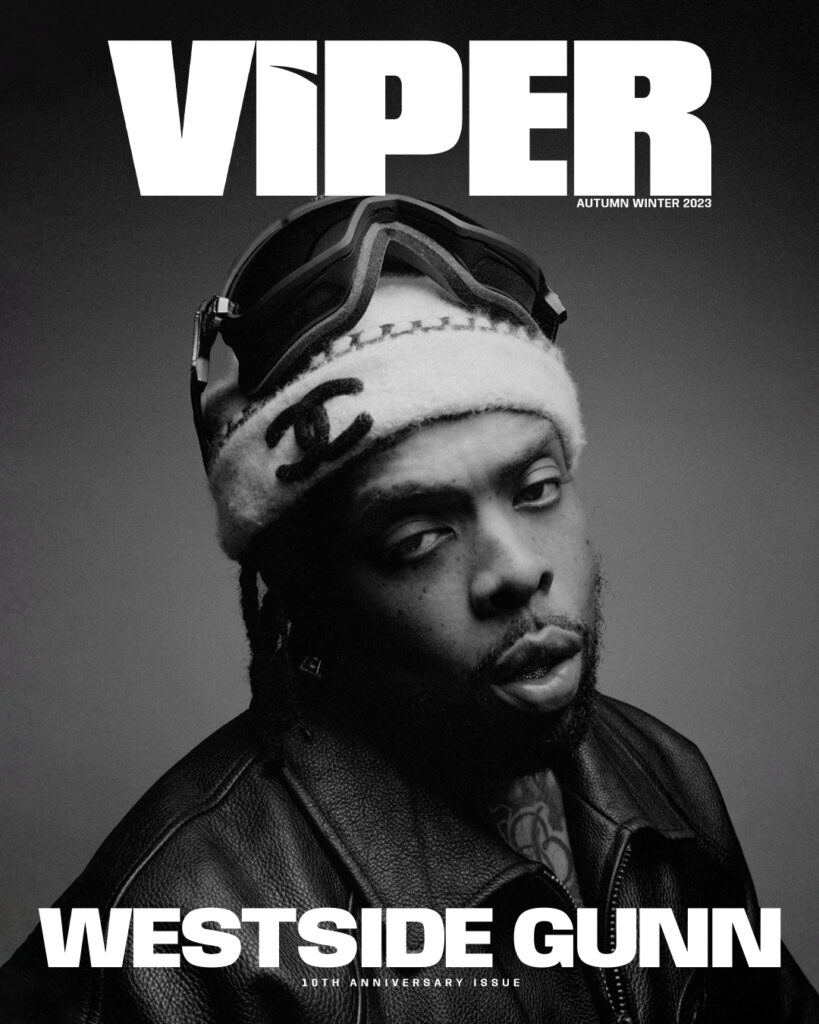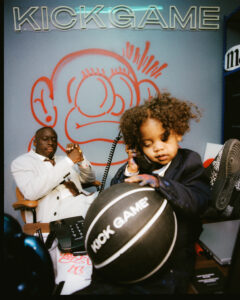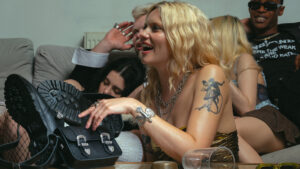As Cadet arrives for our interview at a cosy little cafe in west London, he walks in carrying a tonal disposition that is as present in his music as it his persona. It’s the energy of total expression, honesty and distinguished humanity. With no contradictions or complexities, he’s authentically Cadet, and so I ask..
Your latest track ‘Instagram Girls’, you focus on an aspect of male and female interaction. What are your thoughts on social media and generational communication?
What inspired me to make that song was seeing men not understanding their worth in relationships. I’ve seen relationships where its non-stop chasing. Rather than a pair working together, it seems to be a 70-30 thing. A king is a king, a queen is a queen, those two being together is what makes royalty, the coupling. Its about men knowing their worth, if you are going to treat your woman like a queen – which you should do – its about knowing your worth and being treated like a king in return.
If we focus on kings or archetypes of the male and relate it back to Grime, there is definitely a masculinity complex that comes with the role of the MC. Do you ever find yourself implicated by such a concept?
I feel like my touch on the Grime scene is almost an un-Grime like touch. Grime talks about the same things over and over again – how sick you are, how many girls you get, how much P [money] you have – but I try to add some sort of content to the scene. I feel like I’m only able to talk about deep and emotional things because I’m really comfortable in my skin. I’m really in touch with what my flaws are, what to work on, so nothing really knocks me. I can talk about anything and it doesn’t affect my masculinity.
Do you think masculinity complexes can impede other Grime artists and their music?
If it lets them, but I don’t think it affects it that much to be fair. Nowadays, you don’t need to front as much. Back in the day, you almost had to front, living up to [the image of] the big badman. Before, to be a rapper or Grime artist you had to be a badman. Now, you can literally be a backpack rapper and do well, still. You don’t have to be this idea of masculinity to work in music anymore; I feel like that complex is slowly eroding.
So let’s relate it to feminine complexes today. In ‘Instagram Girls’ you talk about this entity of a woman, someone that is disconnected from herself but wholly connected to her image, what are your thoughts on the way these dynamics affect relationships?
Its about being able to spot the difference, it’s all well and good when it’s happening, but you have to be able to differentiate who you are on the [Insta] ‘gram, and who you are in reality. The second you become disconnected, and are not able to understand one from the other, you’re lost. The next thing you know, your social media becomes your reality and your reality becomes as unused as your social media once was. It’s about being able to understand who you are, not losing that disconnect.
In your work, you regularly rap about your experiences, with relevance to social issues. What kind of topics are resonating with you personally right now that relate to a wider scenario of concerns?
Selfishly, I just talk about my experiences. It just so happens that what I’m talking about, others may be going through. I believe that even if you can’t relate, you have to respect it because it’s honest. For example, if I had a song about someone in my family having cancer, if you’ve never experienced that scenario, even though you can’t relate to it, you have to respect the honesty. So, it’s just about me being so honest about the things I’m talking about, that the world – even if they can’t relate to it – has to respect it.
With that mentality, you’re providing an opportunity to open conversations; in talking about your pain, you become a figure people can rely on and seek when necessary. Are there any artists or creative figures that you look up to, that can provide a similar mental awakening?
Poets! When I first started rapping, I used to go to poetry shows. I feel like poets are the best performers, I could have never heard of someone’s work before, but the way poets hit the stage, the way they perform and act, the way they hold onto a word or a syllable, or even rhythm, it draws you in so much. How captivating they are and how much they can hold you, I tried to learn that.
Continuing to identify with poetry, Thich Nhat Hanh – Buddhist teacher, activist and poet- once stated: “The notions and ideas we have about happiness can entrap us. We forget that they are just notions and ideas. Our ideas of happiness may be the very thing that’s preventing us from being happy. When we’re caught in a belief that happiness should take a particular form, we fail to see the opportunities for joy that are right in front of us.” What are your thoughts?
It’s very relevant to today, it highlights how people approach happiness. But it’s about living in your OWN reality. In the beginning of my career, I always thought that getting into music is what happiness would be. I always thought, “I’m working a 9-5, I need to quit this and work for myself, things will be so much better.” But I didn’t think about the reality of it. You leave a 9-5 and pick up a 24/7. The hours I was putting into working for somebody else – 40 hours a week – for someone else’s company, I really needed to be applying double or triple that for my own legacy. I always thought being in the studio, coming with hit after hit after hit would be happiness, I never really weighed up the reality of it. For instance, the 100 hours in the studio, just to come out with an OK song, not the hit you were expecting to be making.
If you’re working for someone else, and late for work, the furthest implication that’s going to have is, “oh why were you late today?” Nowadays, if I’m late for an interview with a radio personality, me being late isn’t just a, “sorry I’m late”, it turns into the ideal, “he’s not serious about his career”, or “let’s not work with him in the future.” So the notions I had about music and my happiness have switched, and its very easy to see the destination and not the journey. But now, I’m on the actual journey of it all, happiness comes as a result of my own work, the reality of working and being responsible for myself, not the inactive notion of such a thing. I have to always remember, where I’m coming from, what it means to me now but also what it meant when I first started.
Compared to when you first started, to where you are now, how do you see it progressing for you?
I’ve understood now, I don’t realise what I’m capable of. I don’t want to limit myself by stating where I might be in five years time. If I say, in five years time, I want to make five million pounds. I could work so hard tomorrow that by next week I have five million pounds. It’s just about me working hard today.
And when it comes to music?
Right now, I’m finding it kind of hard to merge the passion I have in my freestyles with the music. Growing up, it was straight rap, we couldn’t afford time in the studio, or someone to record us on the camera. I spent so much time just rapping, and not developing a sound of music, that now I just need to develop my sound. All my life I’ve been a rapper, now its about being a musician.




